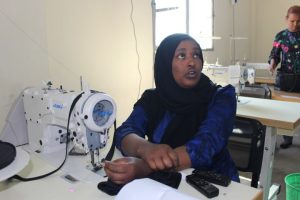
Conference acknowledges Ethiopia’s agricultural progress as model
ADDIS ABABA – Ending world hunger requires addressing systemic issues such as poverty, inequality, and climate resilience in a comprehensive way, emphasized Prime Minister Abiy Ahmed (PhD) at the “World Without Hunger” conference yesterday.
PM Abiy stressed that tackling global hunger goes beyond boosting productivity; it requires confronting underlying challenges holistically. “In a crisis-prone world with a growing population, ensuring food security demands innovative solutions,” he stated, advocating for sustainable practices, advanced farming techniques, improved agricultural inputs, and climate adaptation to boost productivity.
Abiy highlighted Ethiopia’s strides toward food security, noting that agricultural transformation over the past six years has doubled cultivated land and produced promising outcomes with high-value crops. “We have made gains in drought-resistant crops like wheat, teff, and maize, along with transformative initiatives like the Green Legacy Initiative, which has boosted climate resilience and agricultural productivity.”
The Green Legacy Initiative (GLI) has expanded forest cover, restored ecosystems, and improved soil conditions, creating a stronger foundation for sustainable farming. To eradicate hunger, the Premier emphasized the importance of transforming food systems through agro-industrialization, focusing on agricultural inputs, energy access, and processing technology.
He called for a collaborative approach, with governments, private sectors, farmers, researchers, and international organizations working together to achieve this goal.
UNIDO Director-General Gerd Müller, in his opening remarks, urged that hunger be prioritized on the global political agenda, especially in Africa, which holds 60% of the world’s arable land and six of the world’s fastest-growing economies. “Africa has the potential to power itself through renewable energy and transform from a food importer to an exporter,” he said, noting Ethiopia’s progress as an example.
African Union Commission Chairperson Moussa Faki Mahamat remarked that despite Africa’s resources, the continent remains behind in its goal to end hunger. FAO statistics show that over 280 million Africans face food insecurity, with 850 million unable to afford a healthy diet.
President and CEO of Africa Finance Corporation (AFC) Samaila Zubairu underscored the need for investment, import substitution, and support for farmers and agri-investors.
Ethiopia’s Industry Minister, Melaku Alebel, highlighted the nation’s achievements in agriculture and value-added production, stating that the “Made in Ethiopia” initiative has attracted investors and advanced food security. He added that despite challenges like climate change and resource scarcity, Ethiopia’s progress in processed foods, honey, and coffee exemplifies the success of public-private partnerships and serves as an inspiration to others in the fight against hunger.
In the conference, it was learned that an additional investment of 50 billion USD annually is required over the next 10 years, totaling 500 billion USD, to make the world free from hunger.
BY BETELHEM BEDLU
THE ETHIOPIAN HERALD WEDNESDAY 6 NOVEMBER 2024





